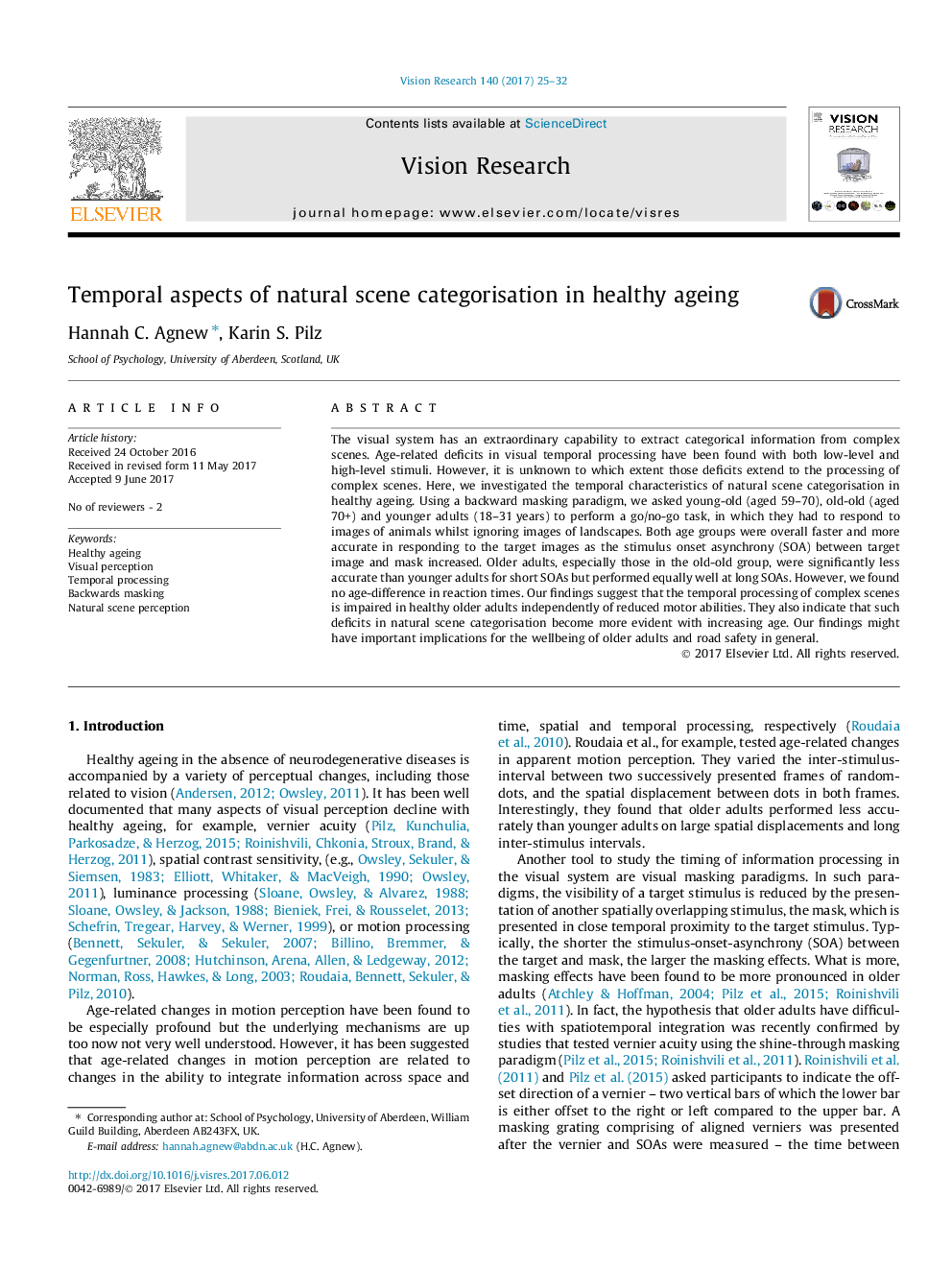| Article ID | Journal | Published Year | Pages | File Type |
|---|---|---|---|---|
| 5705822 | Vision Research | 2017 | 8 Pages |
Abstract
The visual system has an extraordinary capability to extract categorical information from complex scenes. Age-related deficits in visual temporal processing have been found with both low-level and high-level stimuli. However, it is unknown to which extent those deficits extend to the processing of complex scenes. Here, we investigated the temporal characteristics of natural scene categorisation in healthy ageing. Using a backward masking paradigm, we asked young-old (aged 59-70), old-old (aged 70+) and younger adults (18-31Â years) to perform a go/no-go task, in which they had to respond to images of animals whilst ignoring images of landscapes. Both age groups were overall faster and more accurate in responding to the target images as the stimulus onset asynchrony (SOA) between target image and mask increased. Older adults, especially those in the old-old group, were significantly less accurate than younger adults for short SOAs but performed equally well at long SOAs. However, we found no age-difference in reaction times. Our findings suggest that the temporal processing of complex scenes is impaired in healthy older adults independently of reduced motor abilities. They also indicate that such deficits in natural scene categorisation become more evident with increasing age. Our findings might have important implications for the wellbeing of older adults and road safety in general.
Related Topics
Life Sciences
Neuroscience
Sensory Systems
Authors
Hannah C. Agnew, Karin S. Pilz,
